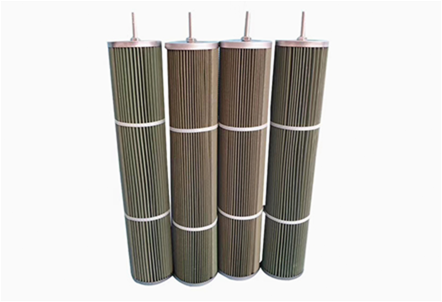 Tel:
+8615930870079
Tel:
+8615930870079
พ.ย. . 28, 2024 04:40 Back to list
High-Efficiency Air Filters for Enhanced Indoor Air Quality and Pollution Control
Understanding HEPA Cartridges A Key to Clean Air
In today’s fast-paced world, where air quality is becoming an increasingly urgent issue, HEPA cartridges stand out as essential components for effective air purification. HEPA, which stands for High-Efficiency Particulate Air, describes a type of air filter that can trap a vast majority of very small (0.3 microns or larger) particles, including dust, pollen, mold spores, and even certain bacteria and viruses. This article delves into the significance, technology, and applications of HEPA cartridges, emphasizing their role in maintaining clean and healthy indoor environments.
What are HEPA Cartridges?
HEPA cartridges are a specific type of air filter that adhere to standards set by the U.S. Department of Energy (DOE). To qualify as HEPA, these filters must capture at least 99.97% of particles that are 0.3 microns in diameter. This size is critical because it is known as the Most Penetrating Particle Size (MPPS). Particles of this size are notoriously difficult to filter out, yet HEPA filters excel in doing so due to their unique construction. Typically made from a mat of randomly arranged fiberglass fibers, these filters create a web that traps particulates as air passes through.
The Importance of Air Quality
Clean air is vital for health and well-being. Poor air quality can lead to a variety of health issues, especially for vulnerable populations such as children, the elderly, and those with pre-existing respiratory conditions. Additionally, a significant percentage of the population is allergic to common airborne allergens, such as pet dander and pollen. By incorporating HEPA cartridges into air purifiers, HVAC systems, or vacuum cleaners, it becomes possible to significantly reduce the concentration of these harmful particles in indoor air.
How Do HEPA Cartridges Work?
The efficacy of HEPA cartridges lies in their design and the mechanics of filtration. Air is drawn through the filter, where particles are captured by various mechanisms
1. Interception Particles follow the air streamlines, coming close enough to the fibers that they adhere to them. 2. Impaction Larger particles are unable to navigate the bends in the airflow and collide with the fibers, getting stuck. 3. Diffusion Smaller particles move erratically and can become trapped due to their random motion.
These combined processes enable HEPA filters to capture a high percentage of contaminants, resulting in cleaner and healthier air
.hepa cartridges

Applications of HEPA Cartridges
HEPA cartridges are used in various applications ranging from residential air purifiers to critical healthcare settings.
- Home Air Purifiers Many households use HEPA air purifiers to eliminate allergens, smoke, odors, and other pollutants. They are especially beneficial during allergy seasons or in urban areas with high pollution levels.
- HVAC Systems HEPA filters are often integrated into heating, ventilation, and air conditioning systems to improve indoor air quality across entire buildings, including offices and educational institutions.
- Vacuum Cleaners High-quality vacuum cleaners often feature HEPA cartridges to prevent released dust and allergens from re-entering the air during cleaning. This is particularly important for households with allergy sufferers.
- Healthcare Facilities Hospitals and laboratories use HEPA filtration systems to ensure that pathogens and allergens are effectively controlled, protecting both patients and medical staff.
Maintenance of HEPA Cartridges
To maintain their efficiency, it is crucial to replace HEPA cartridges regularly, as prescribed by manufacturers. A clogged HEPA filter can restrict airflow, reducing its effectiveness and potentially leading to the growth of mold and bacteria. Regular maintenance ensures that the air quality remains high, which is especially vital in environments that demand stringent cleanliness standards.
Conclusion
HEPA cartridges play a pivotal role in improving indoor air quality by effectively capturing airborne pollutants that can affect health and well-being. Their technology has proven effective across diverse applications, from everyday home use to critical healthcare environments. Investing in systems that feature HEPA cartridges can lead to healthier living spaces, making them an essential consideration for anyone looking to improve their air quality. As concerns about air pollution and respiratory health continue to grow, understanding and utilizing HEPA technology becomes increasingly important.
-
Types and Applications of Air Filtration CartridgesNewsJul.28,2025
-
The Role of Gas Turbine FiltersNewsJul.28,2025
-
Mastering Air Filter Cartridge UseNewsJul.28,2025
-
Advanced Turbine Filters for Modern Gas TurbinesNewsJul.28,2025
-
Cellulose Air Filter Cartridge Advantages in Dust FiltrationNewsJul.28,2025
-
Cellulose Filters for Air Particle ReductionNewsJul.28,2025

 Email:
Email:





